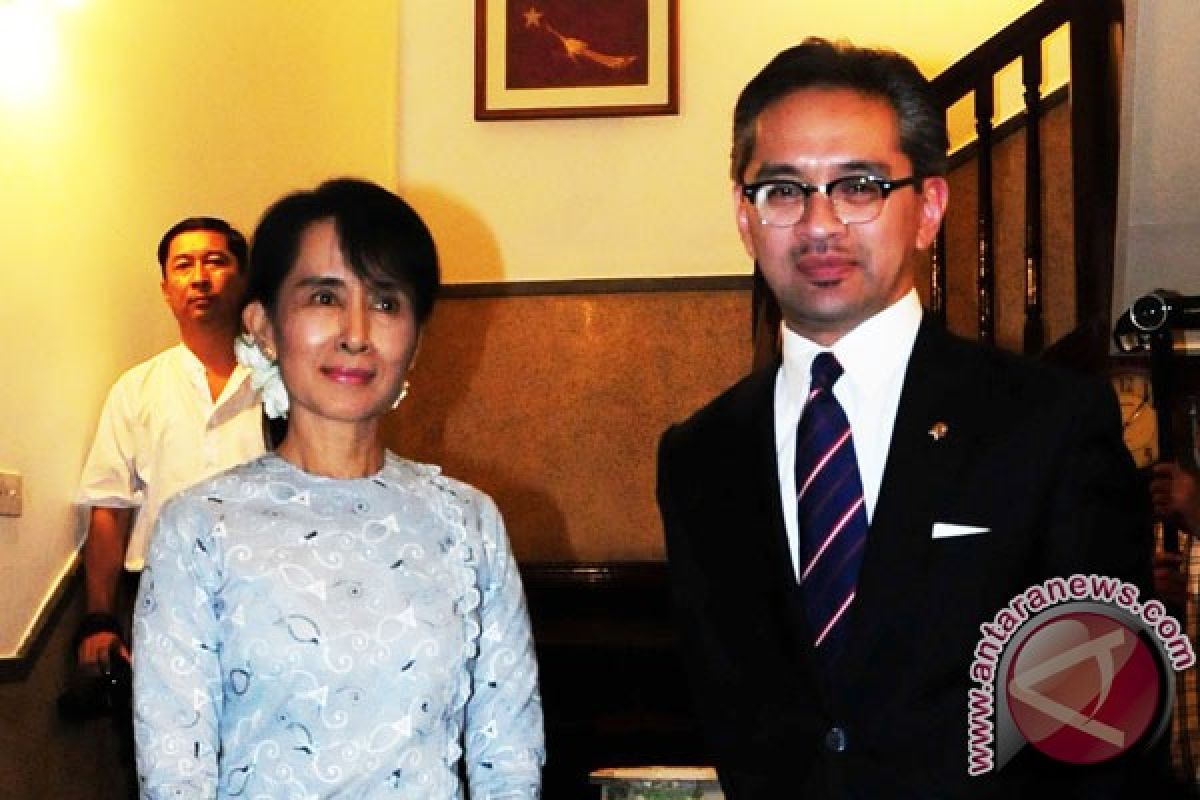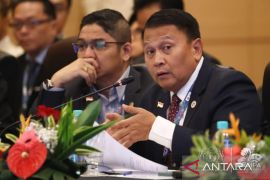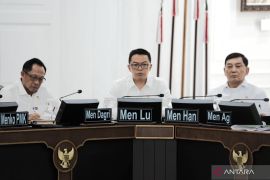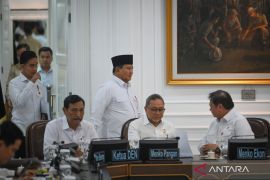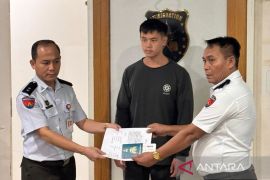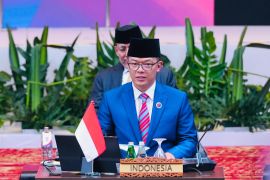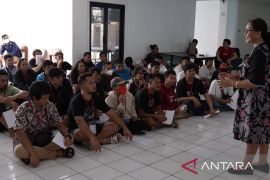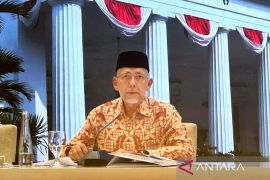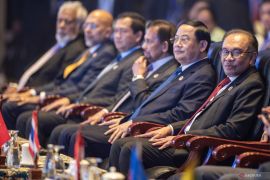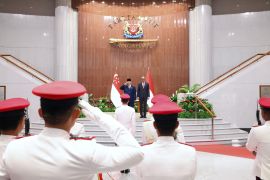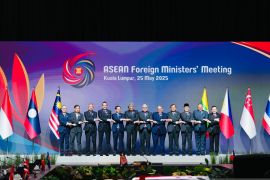... A coup is not impossible either... We really are at a turning point and we are not very far away from entering a new phase...Bangkok (ANTARA News/AFP) - One year on from an election condemned by the West as a farce, military-dominated Myanmar has surprised critics with a series of reformist moves allowing hope for change in the repressive state.
On November 7, 2010, 29 million voters were asked to cast their ballots in the country's first election for 20 years, choosing representatives to a two-chamber parliament and regional assemblies.
A quarter of the seats were reserved for the military, however, and the army-backed Union Solidarity and Development Party claimed an overwhelming victory.
The poll was marred by claims of cheating and the absence of democracy icon Aung San Suu Kyi, who was released a week later after seven years of house arrest. Her opposition party was delisted for boycotting the vote.
But although it is controlled by the military, Myanmar's new government has reached out to opponents and signalled a series of political reforms in recent months that would have been unthinkable a year ago.
"In any country, new elections bring changes, so we supported (the poll)," said Myanmar expert Aung Naing Oo of the Vahu Development Institute, a Thai-based think-tank.
"But we never thought that the changes would be this quick and unprecedented."
In March, Myanmar's strongman leader Senior General Than Shwe, who had been in power since 1992, retired. The junta was dissolved, clearing the way for a nominally civilian administration.
Since then President Thein Sein, a former general, has taken critics aback with a number of conciliatory gestures, most notably by holding direct talks with Suu Kyi.
He also stunned observers by defying ally China and freezing work on an unpopular mega-dam, saying he had to "respect the will of the people".
Suu Kyi herself has cautiously welcomed "positive" developments in her country, but said it was unclear whether Thein Sein would be able to carry through his reform pledges.
Members of parliament have opened their meetings to the media and passed eye-catching laws such as one that gives Myanmar's workers the right to strike, and another that clears the path for Suu Kyi's National League for Democracy (NLD) party to legally re-register.
These small yet remarkable steps have won measured praise from rights groups, which nonetheless remain wary of the authoritarian regime in the country also known as Burma.
"Since President Thein Sein took office... the rhetoric of his government has changed markedly," New York-based Human Rights Watch said in a statement to mark the poll anniversary.
"While the new government has passed reformist laws and promised policy changes, the real test will be the reaction when Burmese citizens try to avail themselves of their rights," said Elaine Pearson, the group`s deputy Asia director.
Rights defenders also continue to decry human rights abuses and violence against the country's ethnic minority groups, many of whom have been in conflict with the regime since independence from Britain in 1948.
Aung Naing Oo conceded the pace of change was "very slow" on some issues.
"What we should understand is that a lot of people from the government are from the past, with an old mindset," he said. "They need to put less emphasis on security, and more on development, peace."
He also warned of the risk of a backlash from powerful "hardliners" opposed to too much change, a concern shared by other observers.
"We can't say that this transition is irreversible. It could come to a halt if the current regime believes it`s too risky," said a Western diplomat who did not wish to be named.
"A coup is not impossible either... We really are at a turning point and we are not very far away from entering a new phase."
While the United Nations, the United States and the European Union have acknowledged the government's recent efforts, they continue to press for major reforms and the release of all the country's roughly 2,000 political detainees.
The regime pardoned about 200 political prisoners in October but disappointed many by failing to free most key dissidents.
Another mass amnesty is expected in the near future, according to diplomatic sources.
In the meantime, experts say the United States and other Western countries are not ready yet to lift the political and economic sanctions they have imposed on the nation since the 1990s.
"Ultimately, the United States will have to take away the sanctions, but I think it will be slow," said Aung Naing Oo. "I think it will take at least two or three years, maybe more." (*)
Editor: Ade P Marboen
Copyright © ANTARA 2011
